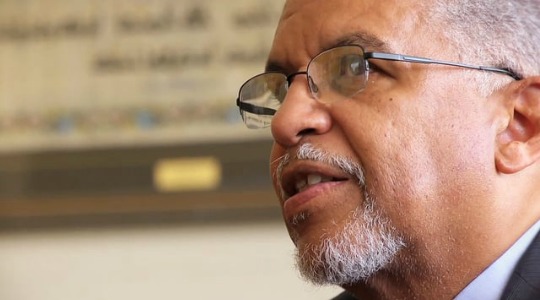With G-d's Name, The Merciful Benefactor, The Merciful Redeemer

With G-d's Name, The Merciful Benefactor, The Merciful Redeemer |
|||||
 |
Shows | News | Watch MNM-TV | DVD'S & Downloads | |
Atlanta Muslim Leader Imam Plemon El-Amin becomes newest MPAC Board Member |
||
 |
|
|
Long time Atlanta Muslim leader, Imam Plemon El-Amin, has become the newest Board Member of the Muslim Public Affairs Council (MPAC). The group is one of our nation's leading public service agencies working for the civil rights of American Muslims. During a recent interview he discussed the current state of African American-Immigrant relations in the Muslim American community. Question: What do you feel regarding the state of relations between the African American Muslim community and the 'immigrant' Muslim community? Imam Plemon: I don't think it's bad. It could be better, but I don't think it's bad. Nowadays, it's a little more difficult to generalize because it's a different relationship between the generations as well. The younger generation has a different relationship than the older immigrant generation with the African American community. I think that the relationship between the younger generations is better because it has less history. When the younger immigrant community talks about home, they're talking about America. Versus the older generation, when they're speaking of home, they're speaking of where their family came from. That's a natural divide there in terms of differences and priorities. But see, in the younger generation, you don't have that. So I would say that the relationship of the under-40 immigrants and African Americans is much more connected than the over-40. But the over-40 has improved quite a bit since 9-11. I think it's mainly because the immigrant communities have sought out the African American communities because our history of civic and political involvement. The best way to bring the communities closer together is to do things together and to do those things together as equal partners. There is a difference in terms of the financials with the immigrant community versus the African American community. Too often the relationship has been about the immigrant community giving something to the African American community or the African American community asking for handouts from the immigrant community. So that is very problematic and we need to stop looking for handouts and we need to stop seeing on the other side that the role of that community is handouts- it's really partnerships. Both communities have distinctive histories and capabilities that need to be shared with one another to benefit the whole. I would say in the immigrant community you have a higher percentage of professionals such as doctors, lawyers, tech people, engineers and in the African American community you have a high percentage of people involved in social aspects- social work, community work, education and those types of things. So it can be a perfect partnership from the political standpoint- when you bring a diverse group of people to voice their concerns and to express what they would like to see from a political standpoint, it means much more. If there is a diversity of people- professional folks, social folks, a lot of those kinds- as well as a diversity of races and ethnicities, then it makes a much more powerful impact. A politician operates on two things: basically those people who are able to donate and people who are able to vote, and the reality is that the immigrant community has a higher propensity to give financial assistance and the African American community is much more involved in voting and the social justice issues. It can be a great partnership. I don't think it is and almost everything in how we would define an American Muslim as a community, almost every aspect of that was pioneered by the African American community-- for example, calling the adhan out loud in the neighborhood, nobody else was doing that. The African American community developed that openness. African American Muslims have really influenced not only the culture of Muslims in America but also the culture of Americans. In this day and time the long dresses have sort of completely disappeared in the fashion world. Because of the style of African Americans, the long dresses and the hair wraps stay in the culture. Another example is the long shorts in professional and college basketball- that came from the Muslim community. We have several African American Muslim communities, what they do is pray and play basketball, and because of the sunnah of the Prophet they would never wear shorts above the knees. That's a direct influence that came from the African American Muslim community and now everybody has these long shorts. If you look back in the history, in the old games you'd say “Wow, those are short shorts”. |
||